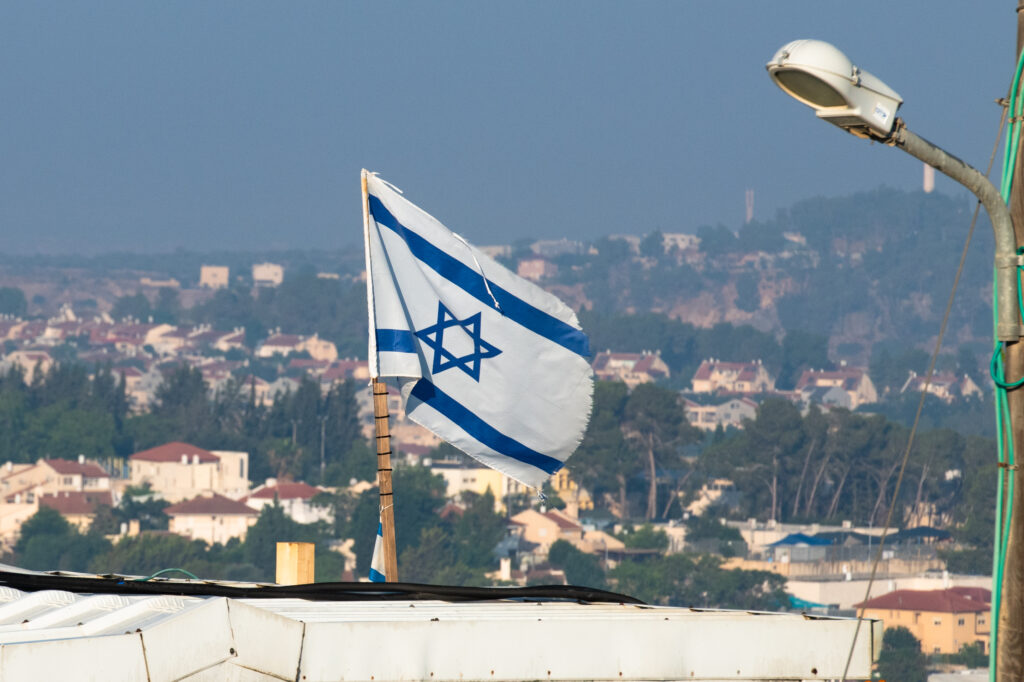
Israel Update: Samaria Isn’t Backing Down & Israel’s Strong Response to Terror
Tensions Rise in Samaria as Residents Block Palestinian Workers
Residents of Karnei Shomron in Samaria have taken the strong step of using their vehicles to block entry to Palestinian workers, expressing frustration that the IDF is not enforcing security regulations. This action followed instances where local real estate developers breached safety protocols by allowing workers on-site without the necessary security supervision.
In response to Hamas’s attack on southern Israel on October 7, the community of Karnei Shomron, like many others, barred workers from the Palestinian Authority. This policy shift mirrored broader actions taken across various regions of Israel and Judea-Samaria.
Before October 7, around 165,000 Palestinians were employed in Israel and Judea-Samaria, with approximately 130,000 holding valid permits and 35,000 working without official authorization. After the October 7 events, roughly 150,000 Palestinians who worked within Israel’s borders lost access to their primary source of income.
Legal action was initiated in July when three business owners challenged the Karnei Shomron Municipality’s decision to bar their workers from entering. A court later ruled that it was the IDF, not the municipality, that had the authority to make such decisions. The military subsequently allowed workers back under strict conditions, including vetting by intelligence services and armed supervision on-site.

At a heated community meeting on Wednesday, attended by over 60 residents, concerns were raised about a potential security breach akin to the October 7 incident. Some residents voiced frustrations over the Israeli government and military’s approach to regulating Palestinian labor, arguing that it exposes the community to unnecessary risks.
Karnei Shomron’s Mayor, Yonatan Kuznitz, emphasized that the municipality had been forced to comply with court orders but had taken action after employers failed to meet security requirements. Despite these measures, residents continued to feel unsafe, leading to Thursday’s protest.
Some residents have proposed boycotting businesses that bring in Palestinian workers without adhering to the required security protocols. As tensions simmer, the protests are expected to continue after the upcoming High Holidays.
Biden Urges Netanyahu to Prevent War with Hezbollah
President Joe Biden announced on Sunday that he plans to speak with Israeli Prime Minister Benjamin Netanyahu regarding the escalating tensions between Israel and Hezbollah in Lebanon, stressing that a larger regional conflict must be averted.
Before boarding Air Force One, Biden emphasized the importance of preventing a full-scale war, underscoring the need for diplomatic efforts. He also praised Israel for its successful operation targeting Hezbollah’s leader Hassan Nasrallah, who was killed in an Israeli airstrike in Beirut. Biden described Nasrallah’s death as justice for the victims of Hezbollah’s terrorism, which included both American and Israeli civilians.
The airstrike, which targeted Nasrallah’s bunker in Beirut, was carried out using U.S.-made precision bombs designed to minimize civilian casualties by striking deep underground. U.S. officials expressed concern that Iran could retaliate against Israel following the assassination. Washington has signaled that it will support Israel and is prepared to take defensive measures if Iran or its proxies target U.S. personnel in the region.
Biden reiterated that while the U.S. stands by Israel’s right to defend itself against Hezbollah and other Iranian-backed groups, the broader goal is to achieve peace through diplomatic channels. The Biden administration has been working on deals to secure ceasefires in both Gaza and Lebanon, aiming to restore stability in the region.
Israeli Airstrike Kills Hamas Leader in Lebanon
Israel confirmed on Monday that it had killed Fateh Sherif Abu el-Amin, a senior Hamas leader in Lebanon, during an airstrike in southern Lebanon. Sherif was a key figure in coordinating between Hamas and Hezbollah, facilitating arms and recruitment efforts in the region.
According to the Israel Defense Forces (IDF) and the Israel Security Agency (ISA), the airstrike took place in the Tyre area and also killed several of Sherif’s family members. Sherif was known for his role in strengthening Hamas’s military presence in Lebanon, both politically and operationally.
Lebanese media reported that Sherif and his family were located in a refugee camp when the strike occurred. The Gaza-based Hamas organization confirmed the deaths soon after the attack.
In addition to the strike on Sherif, Israel also targeted three members of the Popular Front for the Liberation of Palestine (PFLP) in an overnight airstrike in Beirut. The attack took place in a residential building and resulted in the deaths of high-ranking PFLP military figures. This marked one of the few Israeli airstrikes to hit areas outside of Hezbollah’s stronghold in Beirut during the current conflict.
Israel continues to take military action in southern Lebanon, targeting Hezbollah strongholds and terrorist infrastructure. Meanwhile, Israeli Foreign Minister Israel Katz has called for international enforcement of U.N. Resolution 1701, which aims to disarm Hezbollah and push the group north of the Litani River, as a condition for any ceasefire.
The post Israel Update: Samaria Isn’t Backing Down & Israel’s Strong Response to Terror appeared first on Israel365 News.
Israel in the News